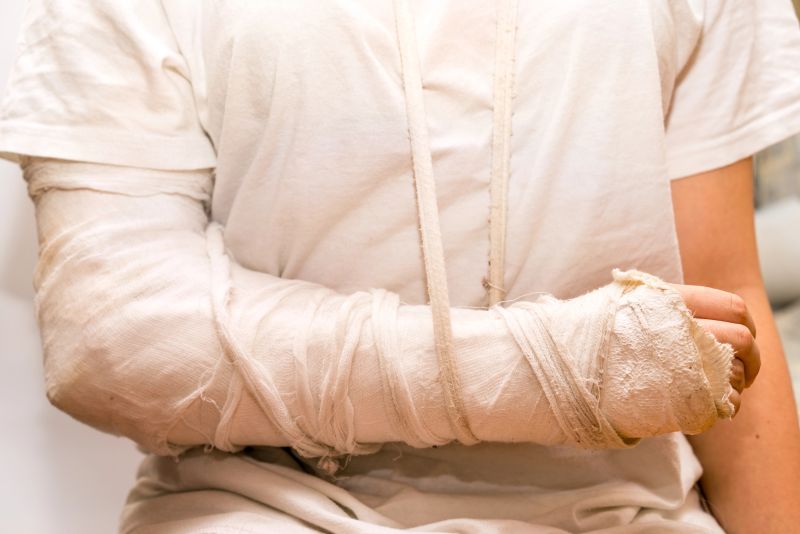What Are The Time Limits For Filing A Personal Injury Case?
What Are The Time Limits For Filing A Personal Injury Case?
Imagine suffering an injury because of someone else’s negligence, only to find out you waited too long to take legal action. Many people in Virginia lose their chance for compensation because they don’t know the deadlines for filing a claim. Acting within the correct time frame ensures you don’t miss your opportunity for justice.
This article helps you understand the specific time limits for filing personal injury lawsuits in Virginia. It explores the general rules, notable exceptions, and how these laws apply to different cases. By the end, you’ll know how much time you have to act and why seeking help from a personal injury lawyer can significantly impact your case.
Statute Of Limitations In Virginia
The statute of limitations is a legal deadline for a person to bring a lawsuit or legal action against another party. It encourages victims to act quickly and prevents delays that could compromise vital evidence. Establishing a deadline helps keep witnesses’ memories fresh, improving the accuracy of their testimony. In personal injury cases, it ensures fairness in the judicial process and protects the injured party and the accused from the consequences of delayed claims.
Once the statute of limitations expires, the court may dismiss your case, no matter how valid it might seem. This deadline may vary depending on the type of case, making it vital to understand which applies to your situation. To understand its impact on personal injury cases, you must first recognize the general time frame for taking legal action.
General Time Frame For Personal Injury Claims
Virginia Code § 8.01-243 (A) requires you to file a claim within two years from the date of your injury. This time frame follows what is sometimes called the “occurrence rule,” meaning the clock starts ticking as soon as the harm occurs. If you miss this deadline, you can lose your legal options, even if your case has merit.
This two-year window applies to different types of personal injury cases, including car accidents, assault and battery, and dog bites. It also covers claims from product liability, such as harm caused by defective items or dangerous prescription drugs, and premises liability incidents like slip-and-falls. While this timeline generally applies to most cases, certain circumstances can extend or pause it, providing exceptions for those with unique challenges.
Exceptions To The Standard Time Limit
Specific exceptions to Virginia’s statute of limitations ensure fairness in distinctive situations. One key concept applicable to some cases is the “discovery rule.” This rule extends the filing deadline when an injury or its cause is not immediately apparent. The statute of limitations starts when you discover, or reasonably should have discovered, the injury and its connection to another party’s actions. Here are some of the significant exceptions outlined under the law.
Minors
The statute of limitations for individuals under 18 pauses or tolls until they reach adulthood. This means the clock for filing a personal injury lawsuit doesn’t start until the minor’s 18th birthday, extending the deadline to their 20th. However, emancipated minors, those who are declared independent and capable of managing their own affairs, are treated as adults. Their time limit starts running upon emancipation.
Incapacitated Individuals
If a person becomes legally incapacitated due to injuries, the statute of limitations is tolled during their incapacity. This means the time they are incapacitated does not count against their filing deadline. Suppose a conservator, guardian, or committee is appointed after the injury. In that case, the lawsuit must be filed by the original deadline or within one year of the appointment, whichever comes later.
Medical Malpractice
In Virginia, specific tolling provisions address challenges in certain medical malpractice cases. If malpractice occurs before the eighth birthday of a minor, the statute of limitations extends until the child turns ten. This ensures that young children and their families have adequate time to recognize and address the harm.
Medical malpractice claims may also involve delayed recognition of injuries, making them prime examples of the discovery rule. Victims must file claims within one year of discovering the injury or when they reasonably should have discovered it in cases such as:
- Non-therapeutic objects left in the body.
- Injuries hidden through fraud, concealment, or misrepresentation.
- Negligent failure to diagnose certain conditions like malignant tumors, cancers, and spinal schwannomas.
These exceptions recognize that medical injuries may take time to surface, and the law adapts to account for this.
Death Of The Injured Party
Personal injuries can sometimes lead to tragic outcomes, such as the loss of a loved one. If the individual eligible to file a lawsuit dies before the two-year period runs out and no claim is pending, their personal representative may pursue the lawsuit. The representative must file within one year of their appointment or before the original statute of limitations period ends, whichever occurs later.
Additionally, if a person dies due to an injury without filing a lawsuit, their representative may file a wrongful death claim. Under Virginia Code § 8.01-244, the claim must be made within two years from the date of death. These provisions allow families to seek justice on behalf of their loved ones.
Sexual Abuse
Victims of sexual abuse may face significant barriers to reporting, such as fear, trauma, or societal pressures. The law accounts for these challenges by offering extended statutes of limitations:
- Abuse During Childhood or Incapacity: Victims have 20 years to file a claim from the date of the abuse.
- General Sexual Abuse Cases (After July 1, 2020): Individuals have 10 years to file after the abuse occurred.
- Abuse by a Person of Authority: Suppose the victim was 18 or older and the abuse involved someone in a position of trust, such as a teacher or coach. In that case, they have up to 15 years to file.
These provisions aim to balance the emotional and psychological barriers injured parties face with their right to pursue justice. However, acting quickly helps preserve evidence and strengthen the case.
These exceptions highlight how specific situations can extend or pause filing deadlines, giving injured individuals additional time to seek justice. Understanding these nuances ensures you take the proper legal steps to safeguard your rights and pursue fair compensation. It’s essential to consult experienced personal injury attorneys to explore the statute of limitations’ applicability to your case.
The Irving Law Firm Pursues Justice For You
Missing a legal deadline can feel devastating, leaving you without recourse for your injuries or loss. At The Irving Law Firm, we know legal timelines can be confusing and stressful, especially when dealing with an injury’s adverse effects. Our team ensures you don’t miss your chance to seek justice and fair compensation.
We take a straightforward approach to understanding your unique situation and crafting a tailored legal strategy. From meeting critical deadlines to gathering evidence and building a strong case, we handle the details while keeping you informed. Our attorneys have successfully helped clients in various personal injury cases, always striving for the most favorable outcomes.
When you work with us, you’re not just another case file. We commit to clear communication, compassionate service, and relentless advocacy to secure the justice and compensation you deserve. With a proven track record and deep knowledge of Virginia law, we’ll stand by your side and help you confidently move forward.
Filing a personal injury claim in Virginia requires understanding the legal deadlines and how they apply to your situation. While most cases follow a two-year statute of limitations, exceptions exist for minors, incapacitated individuals, certain medical malpractice cases, and others. Acting promptly is essential to preserving your rights and strengthening your case.
At The Irving Law Firm, we assist you in navigating the complexities of Virginia’s personal injury laws. Our team guides you through the filing deadlines and diligently works to build a strong case. Don’t wait to seek justice—contact us today to protect your rights and pursue the compensation you deserve.






